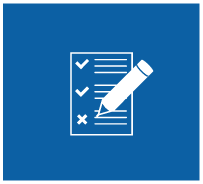You should mail a written letter disputing the debt, ideally within 30 days of the creditor sending you written notice of the debt. (If you mail it to the creditor within 30 days, they have to stop contacting you until they verify the debt, see the guide on figuring out which debt collectors are real for more info). Be sure to keep a copy of the letter and send it via certified mail with a return receipt.
When you challenge the debt within 30 days of first contact, the debt collector must stop all collection activities until they verify the debt. If you don't dispute the debt within 30 days, you can still challenge the debt, but the collector can seek payment while the debt is still in dispute.
Below is an example of one letter you can send.

Sample Letter Language: "I do not owe this debt."
[Date]
[Debt collector name]
[Debt collector Address]
Re: [Account number for the disputed debt, if you have it]Dear [Debt collector name],
I am responding to your contact about collecting a debt. You contacted me by [phone/mail], on [date] and identified the debt as [any information they gave you about the debt]. I do not have any responsibility for the debt you’re trying to collect.
If you have good reason to believe that I am responsible for this debt, send me the documents that make you believe that. Stop all other communication with me and with this address, and record that I dispute having any obligation for this debt. If you stop your collection of this debt, and forward or return it to another company, please indicate to them that it is disputed. If you report it to a credit bureau (or have already done so), also report that the debt is disputed.
Thank you for your cooperation.
Sincerely,
[Your name]
[Your address]Click here for a Word version of the letter.
*This letter is based on a template provided by the Consumer Financial Protection Bureau.
